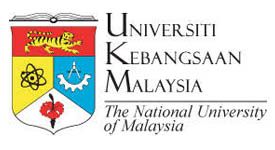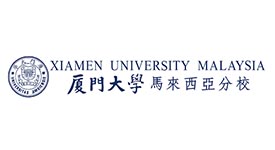Chemistry Course in Malaysia : Complete Guide for International Students

- Home
- Specialization
- Chemistry
Overview
Malaysia offers world-class education in chemistry, combining innovative teaching methods with cutting-edge research facilities. Whether you're interested in organic, inorganic, analytical, or physical chemistry, Malaysian universities provide a comprehensive curriculum designed to meet international standards.
Studying chemistry in Malaysia not only prepares students with theoretical knowledge but also emphasizes practical, hands-on experience. With state-of-the-art laboratories and a focus on research, students are well-prepared to excel in careers such as pharmaceuticals, environmental science, material science, and chemical engineering. Many universities also offer collaboration with industry leaders, enhancing job prospects after graduation.
Why Study Chemistry in Malaysia?
Choosing to study chemistry in Malaysia offers students a unique blend of quality education, affordable costs, and a rich multicultural environment. Here’s why Malaysia stands out as a top destination for aspiring chemists:
Globally Recognized Universities
Malaysian universities are highly ranked and offer accredited chemistry programs recognized worldwide. With a focus on both theoretical and practical knowledge, graduates are well-prepared for international careers.
Cutting-Edge Research and Facilities
Chemistry students in Malaysia have access to state-of-the-art laboratories and research centers. Universities partner with industry leaders to provide students with real-world experience, making them competitive in fields like pharmaceuticals, biotechnology, and environmental science.
Affordable Tuition Fees
Malaysia offers high-quality education at a fraction of the cost compared to Western countries. Students benefit from affordable tuition fees and living expenses, making it an attractive option for both local and international students.
Cultural Diversity and Global Exposure
Malaysia’s multicultural environment provides a vibrant learning experience. International students from all over the world study here, fostering cross-cultural collaboration and networking opportunities.
Strong Career Opportunities
Graduates from chemistry programs in Malaysia are highly sought after, both locally and internationally. With connections to leading industries, students have excellent internship and job placement opportunities in areas such as chemical engineering, materials science.
International Students Studying Chemistry Course in Malaysia
Malaysia offers an excellent platform for international students to study chemistry, with its reputable universities, experienced faculty, and modern research facilities. Opting to study chemistry in Malaysia allows students to explore a wide range of chemistry specializations, from organic and inorganic chemistry to environmental and pharmaceutical chemistry. The chemistry course in Malaysia is structured to provide a strong theoretical foundation along with extensive lab work, preparing students for careers in academia, industry, and research.
With affordable tuition fees and various scholarship options, Malaysia is an attractive destination for international students pursuing chemistry in Malaysia. Universities here focus on practical training, often collaborating with industry leaders and research centers, allowing students to gain hands-on experience and build valuable professional connections.
In addition to academic opportunities, Malaysia’s multicultural environment offers a vibrant international experience, making it easy for students to feel at home. The country's commitment to educational excellence, combined with its affordable cost of living, makes Malaysia a prime choice for students looking to excel in chemistry on a global scale.
Living cost for study chemistry in Malaysia
| Expense Category | Monthly Cost Range (MYR) | Details |
|---|---|---|
| Accommodation | 400 - 1,500 | Depending on location and type (shared or private) |
| Food | 500 - 800 | Meals at campus cafeterias, local eateries, or cooking |
| Transportation | 50 - 150 | Public transportation (bus, train) |
| WiFi/Internet | 50 - 100 | Basic home WiFi plans or data packages |
Comparison of Chemistry Courses in Malaysia
| Category | Malaysia | United States | United Kingdom |
|---|---|---|---|
| Annual Tuition Fees | $3,000 - $7,000 | $20,000 - $50,000 | $15,000 - $35,000 |
| Living Expenses | $3,000 - $5,000 | $10,000 - $18,000 | $12,000 - $20,000 |
| Course Duration | 3 - 4 years | 4 years | 3 - 4 years |
| Total Estimated Cost | $12,000 - $33,000 | $80,000 - $122,000 | $57,000 - $95,000 |

List of Chemistry Universities in Malaysia with courses

Courses:
208World Rank:
138Scholarship: Yes
208Top university for Chemistry in Malaysia
- University of Malaya (UM)
- Universiti Kebangsaan Malaysia (UKM)
- Universiti Putra Malaysia (UPM)
- Universiti Sains Malaysia (USM)
- Universiti Teknologi Malaysia (UTM)
- Monash University Malaysia
- Universiti Tunku Abdul Rahman (UTAR)
- Universiti Malaysia Sabah (UMS)
- Universiti Teknologi MARA (UiTM)
- Taylor's University
Education Levels for Studying Chemistry in Malaysia
Studying chemistry offers a range of educational pathways, each providing a unique depth of knowledge and specialization. Whether you're starting with foundational studies or pursuing advanced research, here are the primary education levels available for chemistry:
Diploma in Chemistry
A diploma in chemistry is an entry-level qualification, often lasting 1 to 2 years. It provides a strong foundation in chemical principles and practical laboratory skills. This program is ideal for students looking to gain quick entry into the workforce or further their education in chemistry.
Bachelor’s Degree in Chemistry (B.Sc.)
A Bachelor's degree in chemistry is typically a 3 to 4-year program, covering core areas such as organic, inorganic, physical, and analytical chemistry. This undergraduate degree is essential for students aiming to work in chemical industries, education, or research. Most universities in Malaysia offer comprehensive B.Sc. Chemistry programs with options for specialization.
Master’s Degree in Chemistry (M.Sc.)
A Master’s degree in chemistry allows students to dive deeper into specific fields of interest such as biochemistry, materials science, or environmental chemistry. This advanced degree usually takes 1 to 2 years to complete and involves both coursework and research. Graduates with a Master's degree often pursue careers in research, industry, or teaching at higher education levels.
Doctor of Philosophy (Ph.D.) in Chemistry
A Ph.D. in chemistry is the highest level of education, taking around 3 to 5 years to complete. It is a research-intensive program where students focus on original studies in their chosen area of chemistry. Ph.D. graduates often go on to become leading researchers, university professors, or specialists in high-level industries such as pharmaceuticals, biotechnology, and environmental science.
Diploma in Chemistry in Malaysia
Intakes
Intakes are typically in January, April, June, and September, depending on the institution.
Entry Requirements
A minimum of 3 credits in SPM (Sijil Pelajaran Malaysia) or its equivalent, including Chemistry and Mathematics.
International students may require O-Levels or equivalent qualifications.
English proficiency: IELTS (minimum 5.5) or equivalent.
Tuition Fee
The average tuition fee ranges from MYR 10,000 to MYR 20,000 per year, depending on the institution.
Jobs for Diploma Holders in Chemistry
- Laboratory Technician: Assisting with chemical analysis and experiments in various sectors.
- Quality Control Assistant: Ensuring product quality in industries like pharmaceuticals, food, and cosmetics.
- Chemical Process Operator: Involved in manufacturing processes in industries like oil and gas or chemical manufacturing.
Bachelor’s Degree in Chemistry in Malaysia
Intakes
Main intakes are in February, June, and September.
Entry Requirements
- STPM/A-Levels with at least 2 principal passes including Chemistry and one other science subject.
- Diploma in Chemistry or related field may also be accepted.
- International qualifications like IB (International Baccalaureate) with chemistry as a core subject.
- English proficiency: IELTS (minimum 6.0) or equivalent.
Tuition Fee
Tuition fees for a Bachelor’s degree in chemistry range between MYR 30,000 to MYR 60,000 for the entire program.
Jobs for Bachelor’s Degree Holders in Chemistry
- Chemist: Employed in various industries such as pharmaceuticals, biotechnology, petrochemicals, and food production.
- Environmental Scientist: Working on environmental protection and sustainability projects.
- Research Scientist: Involved in research and development in government labs, universities, or private companies.
Master’s Degree in Chemistry in Malaysia
Intakes
Common intakes are in March, July, and November. Some universities also offer rolling admissions.
Entry Requirements
A Bachelor’s degree in chemistry or a related field with a minimum CGPA of 2.75 or equivalent.
For international students, equivalent qualifications and an IELTS score of 6.0 or equivalent.
Tuition Fee
Fees for a Master’s in Chemistry range from MYR 20,000 to MYR 40,000 depending on the university and research requirements.
Jobs for Master’s Degree Holders in Chemistry
- Research Scientist: Conducting advanced research in fields like pharmaceuticals, materials science, and nanotechnology.
- Lecturer/Academic: Teaching at universities or colleges.
- Product Development Chemist: Involved in creating new products or improving existing ones in industries like cosmetics, food, or chemicals.
PhD in Chemistry in Malaysia
Intakes
Intakes usually happen in March, July, and October. Some universities may allow students to start at any time throughout the year, depending on research projects.
Entry Requirements
- A Master’s degree in chemistry or a related field.
- Demonstrated research proposal and a good academic track record.
- For international students, an IELTS score of 6.5 or equivalent.
Tuition Fee
Tuition fees for a Ph.D. in Chemistry range from MYR 25,000 to MYR 50,000, depending on the research intensity and the duration of the program.
Jobs for Ph.D. Holders in Chemistry
- University Professor: Leading research and teaching in academic institutions.
- Principal Research Scientist: Working in advanced research labs and institutions.
- R&D Manager: Managing research teams in industries such as biotechnology, pharmaceuticals, and petrochemicals.
Career Prospects of Studying Chemistry in Malaysia
Graduating with a chemistry degree from a Malaysian university opens up a world of diverse and exciting career opportunities. Chemistry graduates are in high demand across multiple industries, thanks to the broad range of skills acquired during their studies. Here are some of the top career paths you can pursue:
Pharmaceuticals and Biotechnology
Malaysia is home to a growing pharmaceutical and biotechnology sector. As a chemistry graduate, you can work in drug development, research, and production, contributing to advancements in medicine and healthcare.
Environmental Science and Sustainability
With the increasing focus on sustainability, chemists play a key role in environmental management and conservation. Graduates can work in environmental protection agencies, analyzing pollutants, improving water quality, and developing eco-friendly materials.
Chemical Engineering and Manufacturing
Chemical engineering is another popular career path for chemistry graduates. In Malaysia, the manufacturing sector relies heavily on chemists to develop new materials, improve production processes, and ensure safety in industries such as petrochemicals, food, and cosmetics.
Materials Science and Nanotechnology
Cutting-edge fields like materials science and nanotechnology offer exciting opportunities for chemistry graduates. In these roles, you can work on developing new materials with applications in electronics, energy, and healthcare.
Education and Research
Many chemistry graduates choose to pursue careers in academia or research. With Malaysia's emphasis on scientific research and development, you can contribute to innovative projects or teach the next generation of scientists at universities and research institutions.
Application Process for Chemistry Course in Malaysia
- To apply for a Chemistry course in Malaysia, follow these steps:
- Research and Shortlist Universities: Start by exploring universities that offer Chemistry in Malaysia. Look into program specifics, entry requirements, and tuition fees to find the best fit.
- Check Admission Requirements: Each institution has specific criteria for admission. Generally, international students need to have completed a high school diploma or equivalent with a strong background in science subjects to study Chemistry in Malaysia.
- Prepare Required Documents: Gather necessary documents, including academic transcripts, passport copy, English language proficiency scores (IELTS/TOEFL), and letters of recommendation, if needed.
- Submit Online Application: Most Malaysian universities allow online applications through their official websites. Ensure all documents are uploaded and application forms are filled accurately.
- Application Fee Payment: Some universities may require a non-refundable application fee. Check the university’s website for payment details.
- Attend an Interview (if required): For certain programs, an interview may be part of the selection process, conducted in person or online.
- Receive Offer Letter: Once accepted, the university will issue an offer letter, which you’ll need to accept formally.
- Apply for Student Visa: After accepting the offer, apply for a Malaysian student visa to legally study Chemistry in Malaysia. This process involves health screenings and submitting documents to the Malaysian immigration authorities.
Visa Process for Chemistry Course in Malaysia
To study Chemistry in Malaysia, international students must complete the student visa application process. Here are the steps:
- Receive University Offer Letter: Secure admission into a Chemistry course in Malaysia. The offer letter from a recognized Malaysian university is essential for the visa application.
- Apply for Visa Approval Letter (VAL): Malaysian universities will often assist in applying for a Visa Approval Letter (VAL) from the Malaysian Immigration Department. Submit required documents like passport copy, academic certificates, and a passport-sized photo.
- Undergo Medical Screening: Some universities require a pre-arrival medical check-up. Ensure it’s done at a registered clinic as specified by the Malaysian Education Ministry.
- Wait for VAL Approval: Once issued, the VAL will be sent to your email. Processing usually takes around 4-6 weeks, so apply well in advance of your intended start date for Chemistry in Malaysia.
- Apply for Single Entry Visa (SEV): With the VAL, apply for a Single Entry Visa (SEV) at the nearest Malaysian embassy or consulate in your country. This SEV permits initial entry into Malaysia.
- Arrive in Malaysia: Upon arrival, the university will assist with further processing and converting the SEV to a student pass.
- Undergo Post-Arrival Medical Check-up: Students need to complete another medical check-up at an approved Malaysian clinic to finalize the student visa.
- Receive Student Pass: After completing the post-arrival check-up, the Malaysian Immigration Department will issue the official student pass, allowing you to legally study Chemistry in Malaysia.
Application Timeline for Chemistry in Malaysia
| Timeline | Action Steps |
|---|---|
| 12-9 Months Before Intake | - Research universities and Chemistry courses in Malaysia. - Compare programs, tuition fees, and entry requirements. - Gather required documents (transcripts, English proficiency, passport). |
| 9-6 Months Before Intake | - Submit online applications to shortlisted universities. - Pay any required application fees. |
| 6-4 Months Before Intake | - Await offer letter and accept the offer from the university. - Apply for Visa Approval Letter (VAL) with university assistance. Processing takes 4-6 weeks. |
| 3-1 Months Before Intake | - Apply for Single Entry Visa (SEV) at the nearest Malaysian embassy with the VAL. - Finalize travel arrangements and accommodation. |
Scholarships for International Students: Study Chemistry in Malaysia
International students seeking to study Chemistry in Malaysia have access to a variety of scholarships that help reduce tuition fees and living expenses. Here are some scholarship options for students pursuing a Chemistry course in Malaysia:
Malaysian International Scholarship (MIS)
Offered by the Malaysian Government, this scholarship is designed for international students to pursue higher education in Malaysia. It covers tuition fees, living expenses, airfare, and more, supporting students who wish to study Chemistry in Malaysia at the postgraduate level.
Public University Scholarships
Many Malaysian public universities, such as University of Malaya (UM), Universiti Sains Malaysia (USM), and Universiti Putra Malaysia (UPM), offer merit-based scholarships for international students enrolled in Chemistry courses in Malaysia. These scholarships may cover partial or full tuition fees.
Private University Scholarships
Private institutions like Monash University Malaysia, Taylor’s University, and the University of Nottingham Malaysia provide scholarships and financial aid packages to international students. Scholarships may be based on academic performance, extracurricular involvement, or financial need.
The ASEAN Scholarships
The ASEAN Scholarship is available for students from ASEAN countries who wish to pursue undergraduate studies in Malaysia. It offers financial support for students to study Chemistry in Malaysia.
External Scholarships
International students may also apply for scholarships from their home country, international organizations, or private foundations. These scholarships often cover various fields of study, including chemistry.










